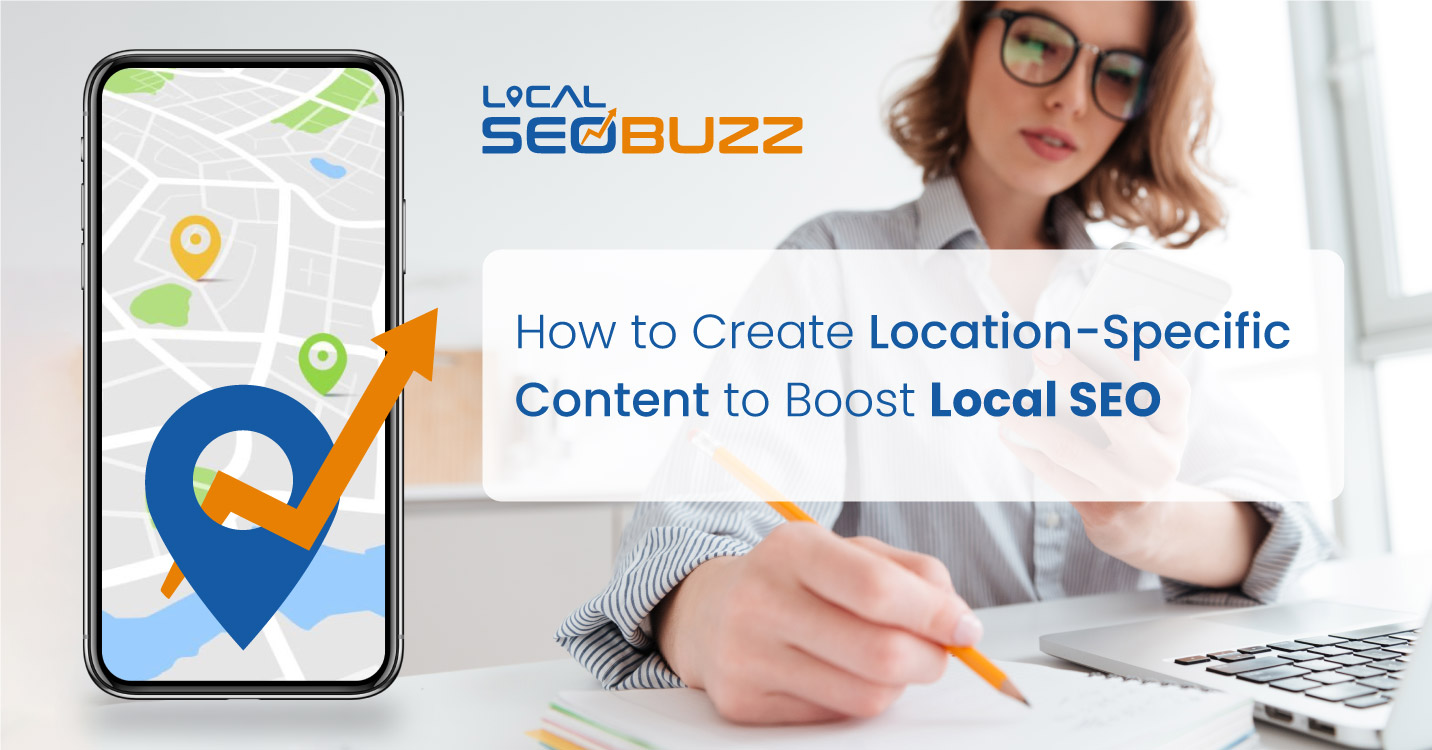Local SEO (Search Engine Optimization) is a process of optimizing a website and online presence to increase visibility in search results for location-based searches, such as “near me” or “in [city name].” The goal of local SEO is to improve the visibility of a business in a specific geographical area, often through a direct marketing strategy. It includes such as creating local business listings, optimizing website content with location-specific keywords, and earning high-quality backlinks from local websites. These days, a local SEO agency offers location-based content as a part of their local SEO package, so you can avail of them when needed.
What is Location-Specific Content & Why It’s Important for Local SEO?
Location-based content is digital content that is specifically targeted to users based on their physical location. This can include things like localized news, weather updates, advertising, and other information that is relevant to a specific area. Location-based marketing strategy is important for local SEO experts because it helps businesses to improve their online visibility for local search queries.
By creating location-based content that is optimized for relevant keywords and geographic locations, businesses can attract more local traffic to their websites and increase their rankings. This can help them to reach a wider audience of potential customers who are searching for products or services in their local area.
Location-based content can also help businesses to establish themselves as experts in their local area by providing valuable information that is relevant to the needs and interests of local users. This can help to build trust and credibility with potential customers, which can ultimately lead to increased sales and revenue.
How to Write Location-Specific Content
Location-based content is a crucial part of technical on-page SEO as it lets you win local customers. Below we have mentioned some essential tips for writing location-based content:
Research your local audience
The first step in creating location-specific content is to understand your local audience. This includes their demographics, interests, and preferences. By understanding your local audience, you can create content that resonates with them and addresses their needs and interests.
Identify local keywords
Once you have a good understanding of your local audience, you can use keyword research tools to find keywords that are relevant to your business and location. This includes location-specific keywords such as your city or town name, local landmarks, and other relevant terms. By using these keywords in your content, you can make it more location-specific and relevant to local search queries.
Create relevant content
Once you have identified your target keywords, you can start creating relevant content. This can include blog posts, articles, videos, and other types of content that address the needs and interests of your local audience. Make sure the content is informative and valuable to the reader.
Use local landmarks and attractions
One way to make your content more location-specific is to incorporate local landmarks and attractions. This can include popular destinations in your area, such as parks, museums, and other attractions. By mentioning these locations in your content, you can make it more relevant and engaging for your local audience.
Optimize your content for local search
To improve your local SEO, it’s important to optimize your content for local search. This includes using location-specific meta titles and descriptions, including your location in your content, and using schema markup to help search engines identify your content.
Promote your content locally
Finally, it’s important to promote your content locally to help it reach your target audience. This can include sharing your content on social media, local directories, and other relevant websites. By promoting your content locally, you can increase its visibility and attract more local customers to your business.
Some Amazing Benefits of Location-Specific Content
Creating location-specific content paves way for better local SERP rankings and is an inseparable part of demographic targeting strategies. Let’s have a look at some benefits of location-based content:
Personalization
Location-based content can help personalize the user experience by tailoring information to the specific needs and interests of users based on their location. For example, a weather app can use a user’s location to provide real-time weather updates, making the information more relevant and useful to the user.
Relevance
Location-based content is more likely to be relevant to users because it is targeted to their specific location and surroundings. For example, a local news app can provide news updates about the user’s specific town or city, making the information more relevant to the user.
Increased engagement
Users are more likely to engage with location-based content because it is more relevant and personalized to their needs. This can lead to an increased usage of apps or websites that provide location-based content.
Improved targeting
Location-based content can be used to target specific audiences in specific locations, making it an effective tool for marketing and advertising. For example, a retailer can send targeted promotions or coupons to customers when they are in or near the retailer’s store.
Location-based content is highly used in proximity marketing by marketers. Proximity marketing relies on location-based technology to access a mobile device’s location. And then trigger content by mobile devices at a definitive distance.
Enhanced user experience
Location-based content can enhance the user experience by providing useful and relevant information to users in real-time. This can help users make more informed decisions and take action more quickly. If you are unsure how to achieve that, make sure to consult our technical SEO consultant.
Increased conversion rates
Location-based content can be used to drive conversions by providing users with targeted offers and promotions based on their location. For example, a restaurant can send a coupon to users when they are nearby to encourage them to visit the restaurant. This can help increase foot traffic and sales for the business.
Conclusion
Location-based content is a powerful tool that can enhance user engagement, personalize content, and drive business results. By tailoring content to a specific location, businesses can create a more meaningful and relevant experience for their audience. However, it is important to balance the benefits of location-based content with the potential privacy concerns of users. Overall, when used thoughtfully and ethically, location-based content can be a valuable asset for businesses looking to connect with their audience in a more meaningful way.
At Local SEO Buzz, we help businesses outrun their competitors through our local SEO services. Our team of experienced content writers and Technical SEO experts can create a result-oriented strategy for your content.



